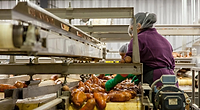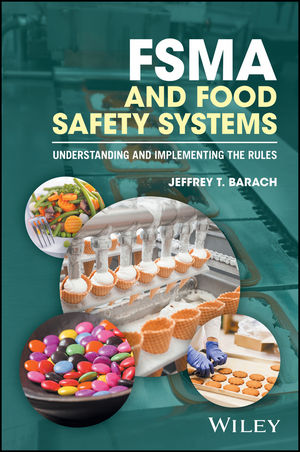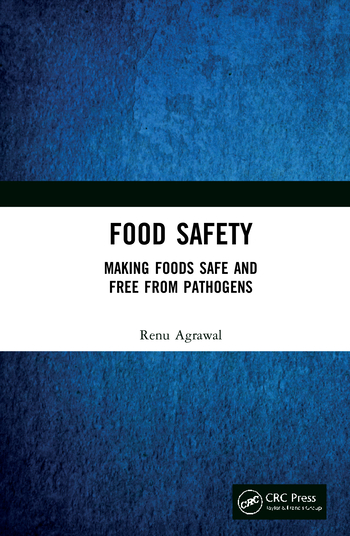From Bonds to Burritos: How the Increasing Criminalization of Regulatory Offenses Affects the Food and Beverage Industry

Burritos and bonds have more in common than you might think. Recently, food and beverage safety violations have escalated from regulatory concerns to criminal issues garnering significant attention from the Department of Justice (DOJ). Conduct that once would have been dealt with by state and federal regulators has now become the target of criminal prosecutors. From the Chipotle Escherichia coli outbreak to the Blue Bell Listeria contamination, attorneys from the DOJ are starting to focus on the foodservice industry—just as they have focused on the financial industry in recent years.
Recent high-profile prosecutions of financial firms and their executives serve as a window into what the future could hold for the food and beverage industry. Not long ago, all but the most serious infractions in the financial markets were handled by financial regulators such as the Securities and Exchange Commission, the Financial Industry Regulatory Authority and the Commodity Futures Trading Commission. Under this regulatory enforcement scheme, liability often took the form of a fine and a consent decree or order, which typically specified corporate reforms that were to be put into place. But the playing field has changed dramatically in the past few years. Criminal prosecutions are no longer reserved for insider trading, Ponzi schemes and other serious financial frauds. Rather, prosecutors have aimed their sights on a wider, and arguably less egregious, array of conduct. Food industry veterans should take notice.
DOJ Sharpens the Knife
This past year financial regulators fined multiple banks for engaging in manipulation and other questionable trading practices in the foreign exchange markets. But scrutiny of the banks’ foreign exchange businesses did not stop with their traditional regulators: The DOJ brought criminal cases against these financial institutions, charging anti-trust violations—which the banks resolved by entering into criminal pleas agreements. The DOJ also obtained criminal plea agreements on wire fraud charges from multiple banks for manipulation of LIBOR (London Interbank Offered Rate), an important interest rate benchmark, even though financial regulators sanctioned these banks as well.
Food and beverage companies should tread carefully when they face problems with their products. Thinking that foodborne illnesses caused by the manufacturing and distribution of compromised food will only trigger civil violations of food and safety regulations is outdated. To underscore this point, on April 6, 2016, Principal Deputy Assistant Attorney General Benjamin C. Mizer delivered a speech to the Consumer Federation of America’s 39th Annual National Food Policy Conference during which he declared food safety to be a priority of the Justice Department. He also announced that the DOJ would use laws of general applicability, such as mail and wire fraud, in appropriate food safety cases. Indeed, because tainted food can cause bodily harm and even death, the government might have an even greater incentive to bring criminal prosecutions than in the financial industry. Accordingly, when a food safety scandal hits, executives should expect that prosecutors will consider employing all available tools at their disposal—including laws not customarily applied in those situations.
Individual Liability Also on the Menu
If criminal exposure for corporations is not enough to cause concern, corporate executives are also increasingly likely to become targets of criminal investigations. Again, the financial services industry serves as a harbinger. Until recently, senior executives and employees often avoided criminal prosecutions, with companies bearing the brunt of the law. This type of resolution—corporate liability without individuals being held accountable—is no longer the expected norm.
In September 2015, Deputy Attorney General Sally Quillian Yates issued widely publicized guidance clarifying that federal prosecutors are expected to prosecute the individuals responsible for corporate misconduct. Indeed, the federal government has had recent success in prosecuting executives in the securities industry—including the convictions of former Rabobank traders Anthony Allen and Anthony Conti for manipulating LIBOR. Of course, there is no reason to expect that the “Yates Memo” won’t be applied with equal force to all industries.
The recent prosecution of the bond trader Jesse Litvak is especially concerning. There the DOJ indicted Litvak for making false statements to counterparties in connection with the purchase and sale of securities. Among other things, the government alleged that Litvak lied to counterparties about the mark-ups he was earning—statements that many industry participants consider to be commonly used sales tactics, as opposed to criminally fraudulent conduct. A jury found Mr. Litvak guilty of 10 counts of securities fraud, four counts of making false statements, and one count of fraud against the United States. While his conviction has been overturned on appeal and he is scheduled to be re-tried, the appellate court notably left the DOJ’s legal theory intact, thus paving the way for similar future criminal prosecutions.
Bolstered by their successful prosecutions of financial services executives, prosecutors will likely pounce on any misleading statements made by food and beverage executives—particularly when it concerns the safety of their products. Indeed, the DOJ has already prosecuted Stewart and Michael Parnell of the Peanut Corporation of America for making misstatements. There, the government presented evidence that the Parnells fabricated certificates of analysis that accompanied shipments of peanut products. The jury convicted the Parnells of, among other things, wire fraud. We expect that such prosecutions will become more common. According to Deputy Attorney General Mizer, the DOJ will continue to “remain vigilant in safeguarding America’s food supply” and “hold accountable those in the food industry who violate the public trust.”
Final Course
When a food safety outbreak occurs, an executive’s first instinct might be to engage outside counsel with expertise before the U.S. Food and Drug Administration (FDA) and the United States Department of Agriculture (USDA). Another call might be to a public relations firm to manage the negative press. While these are both good starting points, food industry executives should also consult a legal advisor who specializes in government enforcement actions as well as criminal investigations. What starts as a request for information from the FDA or USDA could quickly transition to a subpoena from the DOJ. Companies and executives would be well advised to engage experienced counsel at the outset of a food safety outbreak, or any other crisis, to manage any potential criminal exposure.
Daniel C. Zinman, Esq., and Alex M. Solomon, Esq., represent and counsel companies, board committees and executives in connection with investigations, inquiries and other white collar criminal and regulatory defense matters brought by the Department of Justice, the Securities and Exchange Commission and other governmental entities. They also represent clients in connection with complex civil litigations, arbitrations and internal investigations. The authors can be reached at dzinman@rkollp.com and asolomon@rkollp.com.
Looking for a reprint of this article?
From high-res PDFs to custom plaques, order your copy today!









